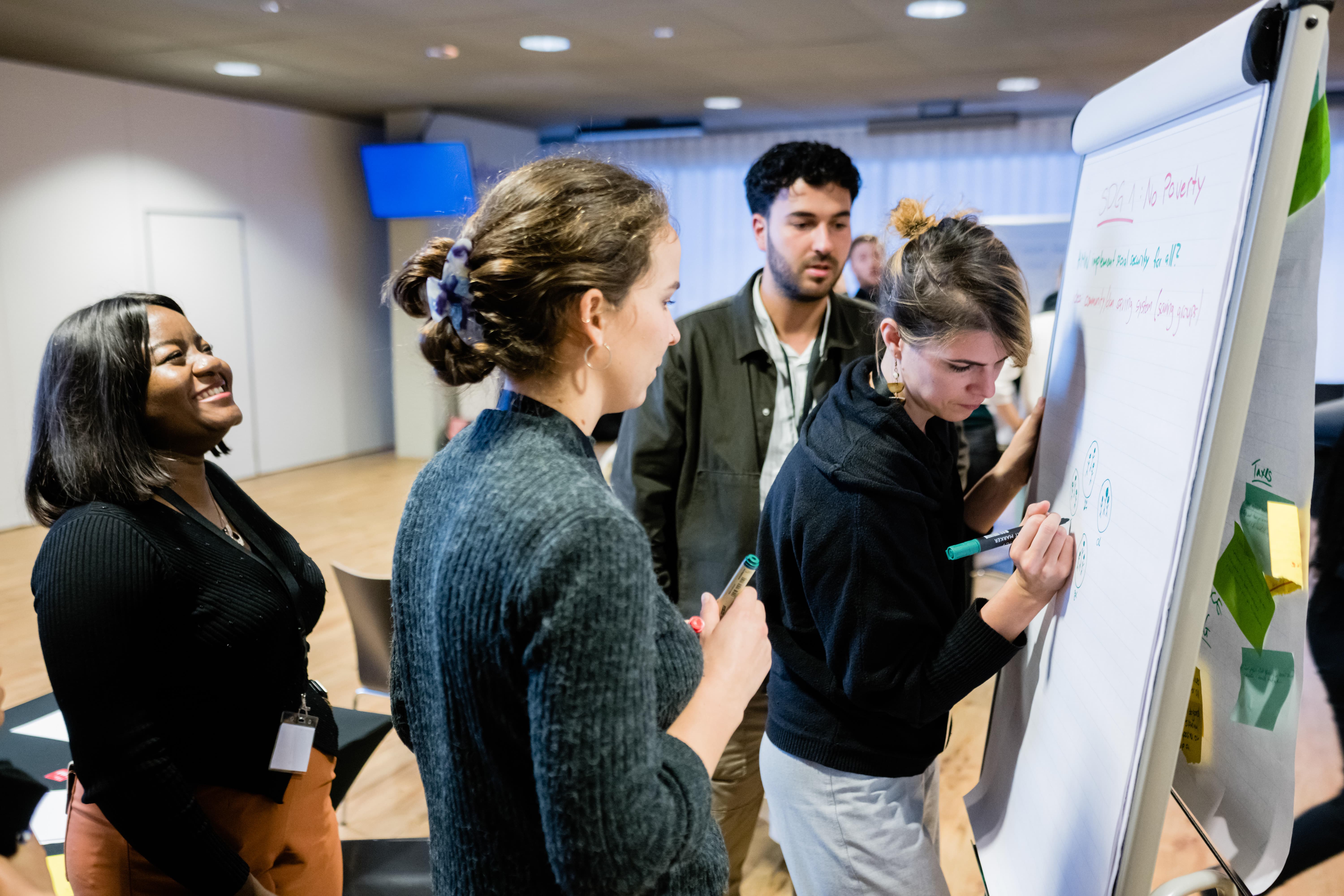Immersion Days 2021
Re-imagining the future of international cooperation
The Immersion Days 2021 were a new series of co-sensing, co-shaping and prototyping on emerging trends and their implications for the field of international cooperation. Taking place online in January 2021, the event brought together nearly 100 professionals from the countries of operations and from the organisations' headquarters in Switzerland. The diversity of participants allowed for a rich exchange of perspectives and experiences.
We should all take a close interest in our future. For it is where you and I will spend the rest of our lives. It is where our organisations will have to evolve in order to remain relevant.
Nina Prochazka, Project Lead Immersion Days

The story behind the event
Covid-19 has challenged most of the certainties we had before. At the same time, the pandemic has been a catalyst of what already existed but was hardly noticeable. For this reason, one year after the Immersion Day "Shaping the organisation of the future", we continued to explore what lies ahead of us and asked: What new path do we need to take as organisations and professionals to remain relevant in the future? How can we get ready for this path? We addressed these questions from different perspectives: attitude, management, collaboration and resilience.
Total transformation: what to expect in the next 10 years
Gerd Leonhard is a leading expert on the future. He shared with the group his main observations and foresights for the next 10 years and what they might imply for geopolitics, international cooperation and the work of development actors.
Blog article:
Highlights of Gerd Leonards' keynote
Short videos:
Key take-aways:
- The future is a mindset. Work on it!
- A deeply transformational decade lays ahead: Our world will change more in the next 10 years than in the previous 100 years. Do not expect that we will go back to normal.
- Resilience and agility are key competencies for the future.
- Embrace digital transformation. You have no excuse.
- Without collaboration there is no future. Pursue hyper collaboration.
- Organisations with a strong purpose and thought leadership are in an advantageous position.
- Flip the VUCA: from volatility to velocity, from uncertainty to unorthodoxy, from complexity to collaboration, from ambiguity to awesomeness.
- The future is better than we think.
Mobility down? No worries: localisation, new formats of collaboration and networking are key
With Ernesto Izquierdo and Makram Soua from the ICRC, and Faye Ekong from RavelWorks Africa, we were in good hands to discuss emerging trends such as localisation and its implementation, collective intelligence and open collaboration. With Asma Khalifa, a women's rights and peace activist, named as one of the 100 most influential young Africans, we focused on inclusion of youth.
Key take-aways:
- Localisation is essential for a resilient and inclusive local development at all levels.
- Location and participation are also about diversity. Take time to decide what level of participation you are talking about.
- Make sure you understand local power dynamics. Maintain honesty in your relationships. Invest time in the formal and informal aspects of relationship building and trust.
- Consider youth as equal co-creators of the future and give them a voice, also at the political level.
- We tend to underestimate the value of competencies enabling collaboration and participation. These are key skills for the future.
Follow-up webinar – to learn more about localisation:
What exactly do we mean by localisation and how does this translate into organisational strategy and practices? How do we practically implement and manage changes that accompany localisation at organisational and departmental level? What does localisation imply for our staff, our jobs, our programmes, our organisational culture?
Localisation – How do we move the needle?
Withstanding in stormy times thanks to inner calmness
With the advice of experts for inner stability, participants experienced approaches to enhance their personal resilience, resilient leadership, social connections in a context of physical distance and disruption.
We gained insights into what happens to our body and mind during a crisis and how we can tap into our own resources. We experienced tools and methods to bring us back into our body, to feel calmer and safer. We also looked together at potential resources for inner stability people have discovered and tended to, and we started developing our own resources.
Thank you Martina Wuethrich (Consultant Organisational Development), Elsbeth Horbaty (Resilience Trainer), as well as Dannette Haley, Jitka Peeters and Abigail Hall (United World Coaches) for the session and the exercises.
Key take-aways:
- Resilience is the ability to cope with adversity and grow through challenges. It refers to the use of internal strengths and external resources. It can and should be trained.
- The key ingredients are your circle of control and your relationships. Focus on them and invest in them.



